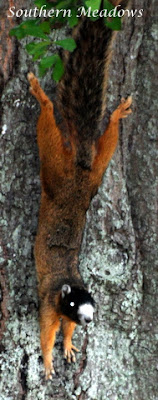Wildflower Wednesday: Helianthus porteri
September is our transition from summer into fall here in Northeast Georgia, and with the cooler morning temperatures and cheery afternoons, gardening is most pleasant, making it my favorite garden season. Some summer flowers are still hanging on but as they fade fall flowers step in with gorgeous color.
Bright yellow blooms are definitely a trend in our autumn garden and this beauty, Stone Mountain Daisy (Helianthus porteri) is a stunner.
Also known as Confederate Daisy, this wildflower grows in granite outcrops within a 60 mile radius of our most infamous granite outcrop, Stone Mountain. This glorious flower is in bloom this month and is celebrated at the Yellow Daisy Festival, held every September at Stone Mountain, an arts & crafts event that just celebrated its 50th anniversary.
Discovered in 1846, this reseeding annual will grow anywhere on Piedmont granite outcrops, where there is sufficient soil (not much!) and water. Peaking out from rock crevices and small cracks, providing an explosion of color, this daisy dances in delight.
Bees and small butterflies are often found visiting, drinking nectar from the blooms. The flower heads are 1-2" wide and have 7-8 yellow ray flowers and a central disk of tiny, yellow flowers. After pollination, seeds will set later in the fall and germinate as early as February.
In our garden we planted it at the edge of our driveway, welcoming all those who drive by. Surrounded by a few boulders and in direct sunlight, it feels right at home.
This annual even stood up spectacularly when Tropical Storm Irma hit our area. This photo was taken a few days after the storm, during our garden clean-up.
Helianthus porteri, is only found growing in four southeastern states (Georgia, Alabama, South Carolina and North Carolina) but this spectacular Georgia wildflower is worth sharing. I'm joining Clay and Limestone, for Wildflower Wednesday, a once a month celebration of our native flora.
Bright yellow blooms are definitely a trend in our autumn garden and this beauty, Stone Mountain Daisy (Helianthus porteri) is a stunner.
Also known as Confederate Daisy, this wildflower grows in granite outcrops within a 60 mile radius of our most infamous granite outcrop, Stone Mountain. This glorious flower is in bloom this month and is celebrated at the Yellow Daisy Festival, held every September at Stone Mountain, an arts & crafts event that just celebrated its 50th anniversary.
 |
| typical granite outcrop habitat (Thompson Mill Arboretum) where Helianthus porteri grows |
Discovered in 1846, this reseeding annual will grow anywhere on Piedmont granite outcrops, where there is sufficient soil (not much!) and water. Peaking out from rock crevices and small cracks, providing an explosion of color, this daisy dances in delight.
Bees and small butterflies are often found visiting, drinking nectar from the blooms. The flower heads are 1-2" wide and have 7-8 yellow ray flowers and a central disk of tiny, yellow flowers. After pollination, seeds will set later in the fall and germinate as early as February.
In our garden we planted it at the edge of our driveway, welcoming all those who drive by. Surrounded by a few boulders and in direct sunlight, it feels right at home.
 |
| street view toward our driveway |
Helianthus porteri, is only found growing in four southeastern states (Georgia, Alabama, South Carolina and North Carolina) but this spectacular Georgia wildflower is worth sharing. I'm joining Clay and Limestone, for Wildflower Wednesday, a once a month celebration of our native flora.




.png)
